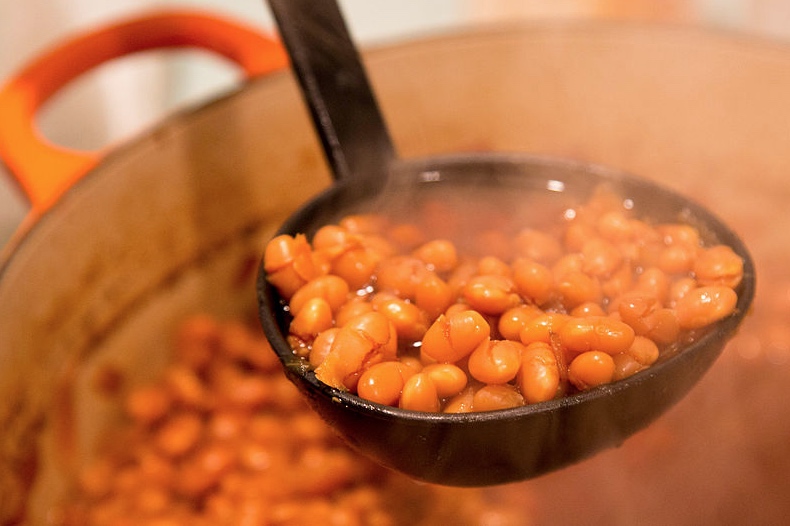Quick links
fèves au lard
< French 'beans with bacon'
DCHP-2 (Sep 2012)
n. — Quebec
baked beans and pork (see Image 1).
Type: 1. Origin — The term is not widely used in Canadian English, where 'baked beans' is more common. Chart 1 shows that the French term is virtually restricted to Canada, where it is sometimes used to stress the origin (see the 1986 quotation) or the French character of the food.
See also COD-2, which labels the term "Cdn (Que.)".
See also COD-2, which labels the term "Cdn (Que.)".
Quotations
1963
Jean Pelletier, a festival vice-president, and the Quebec festival group had laid on special carnival fare, all food for which Quebec is famous. There was tourtiere, a ragout de pattes au lard, feves au lard and soupe aux pois, naturally, and pichonne.
1979
To begin, the Quebec-style pate is superb: somewhat rough and very spicy, perfectly flavored. Feves au lard (beans with pork) are tender and rich, with lots of pork in a tomato sauce.
1986
Food historians in this province admit quite readily that dishes such as feves au lard and pea soup, quintessential French-Canadian foods, derive from the British/American influence.
2002
Traditional Quebecois staples such as tourtiere, gras-de-roti (jellied pork roast drippings ... mmm) and feves au lard fill the menu.
2004
Le Camionneur ("The Trucker") breakfast provides three eggs, three meats, French toast and fèves au lard. Daily lunch specials feature spaghetti boulette or inexplicable crab quiche, start with chicken and rice soup and end with the holy dessert trinity: Jello, sugar pie or pudding chômeur.
References
- COD-2
Images
